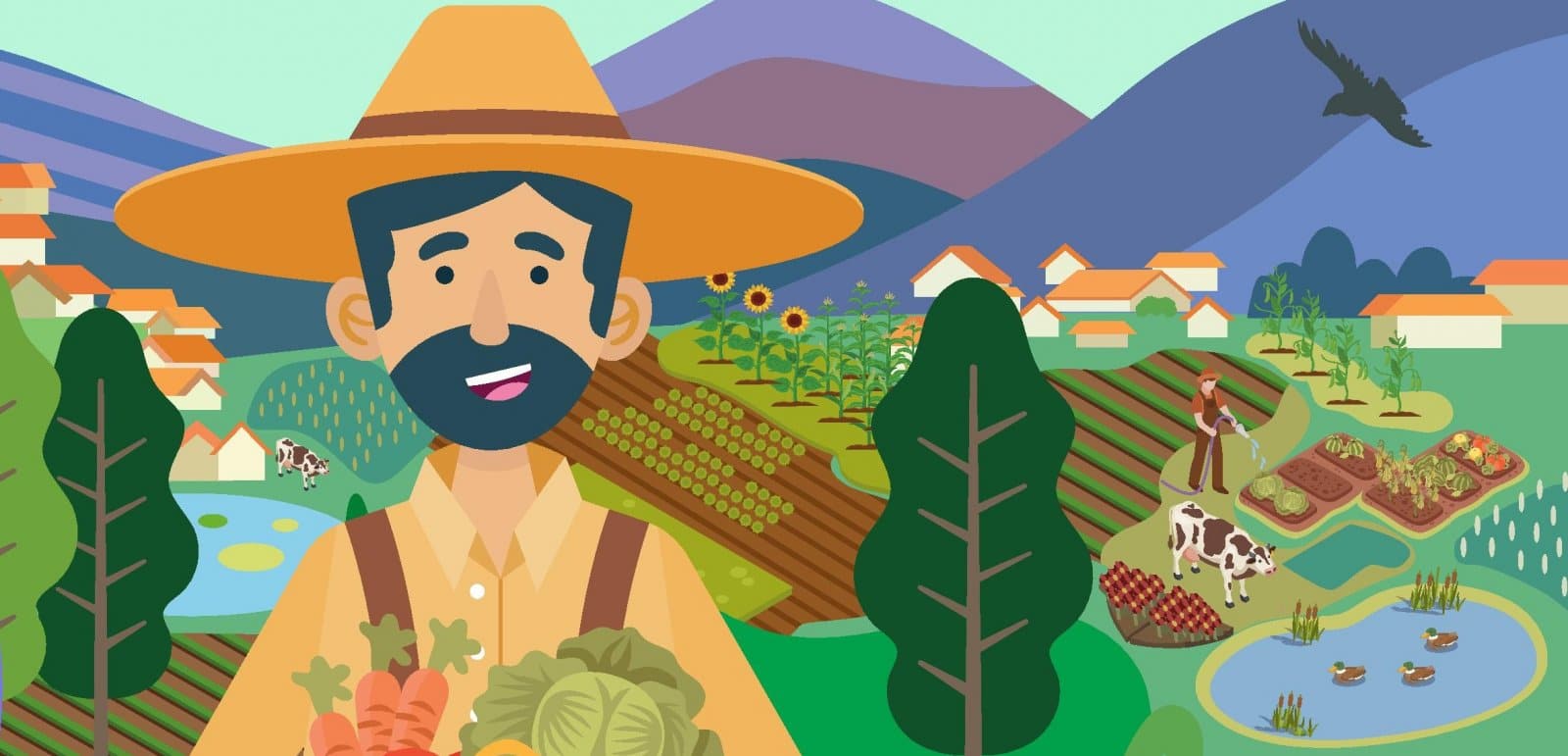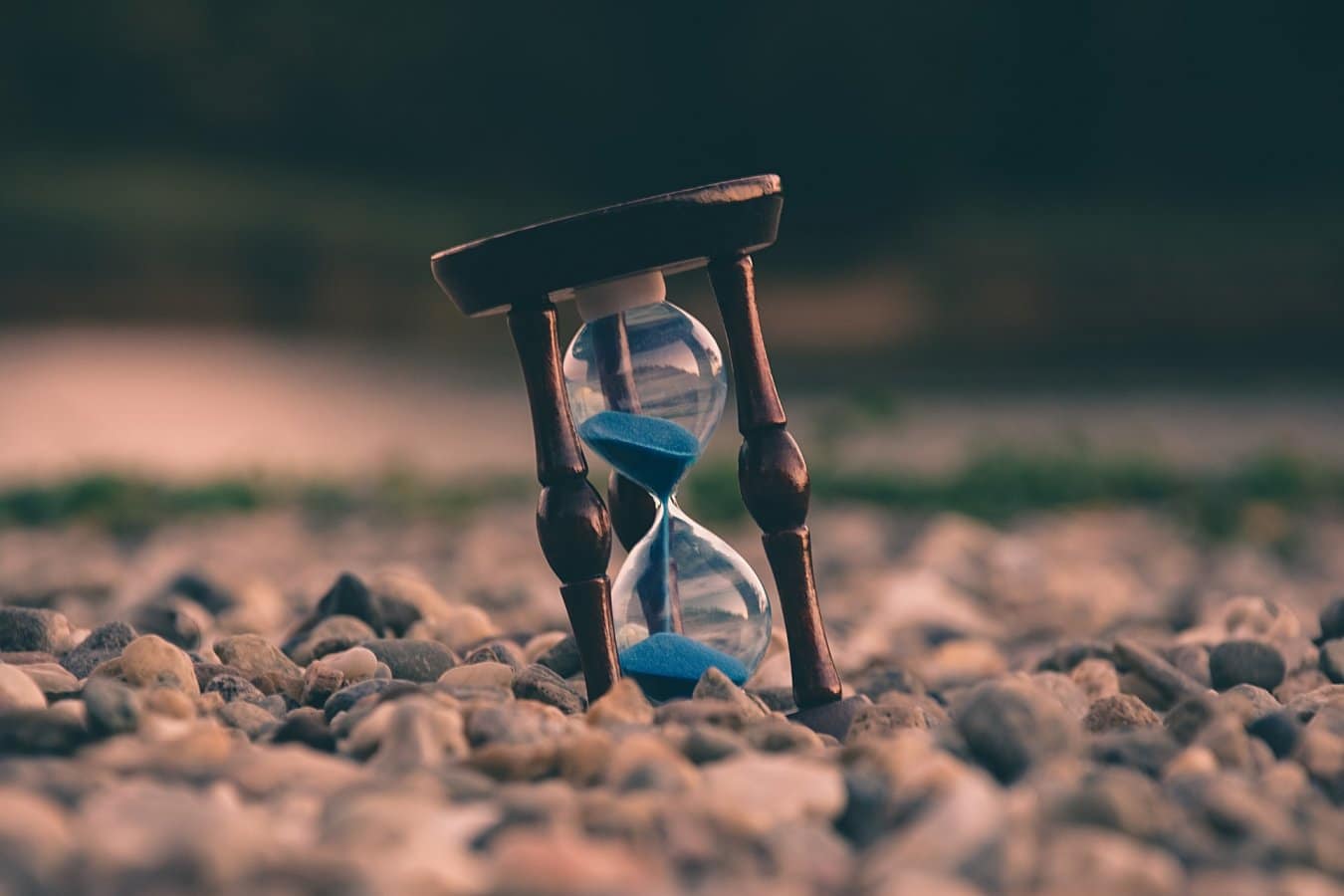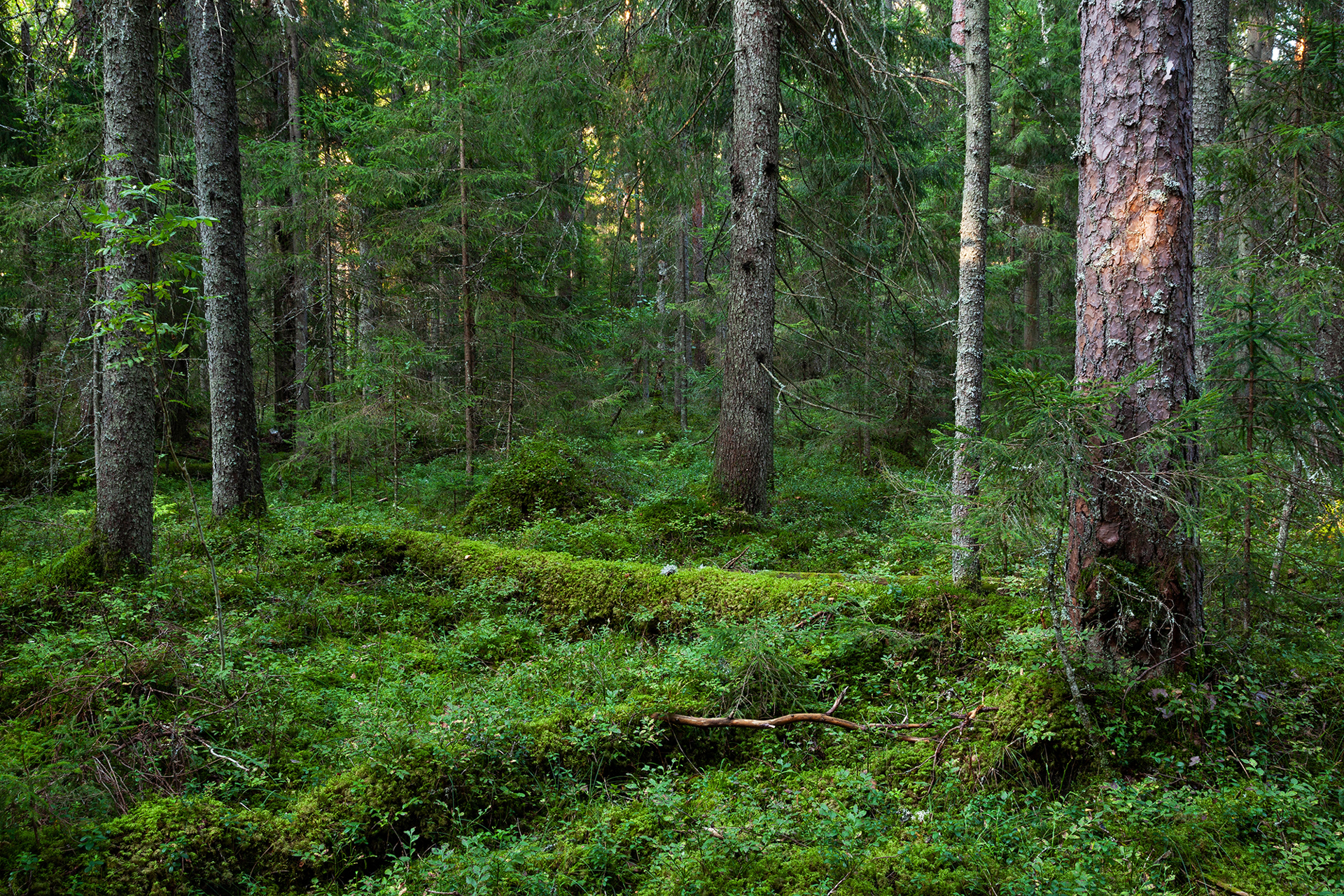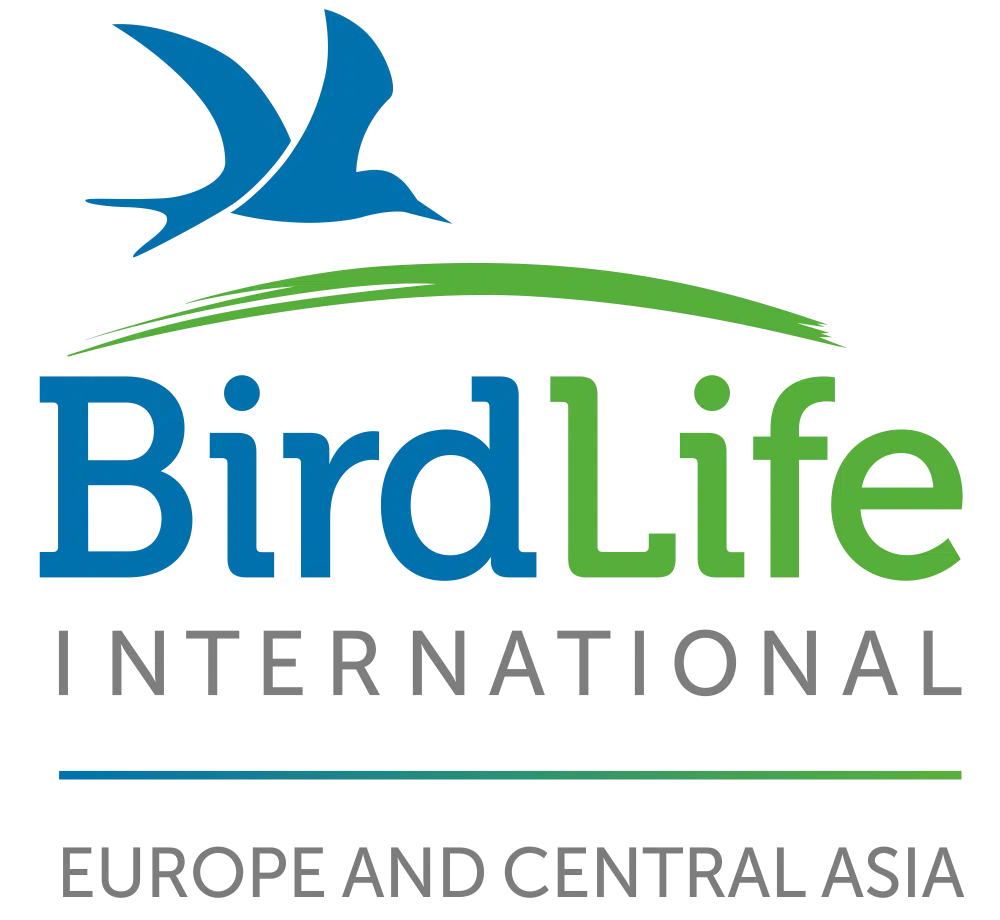Cereal Killers: Some spine-chilling facts about food security

The rumours that Europe is currently facing a food security problem are loud and widespread. The forest and agriculture lobbies have been using the devastating war in Ukraine as an opportunity to spread misinformation around food security. Their ultimate goal is to stop Europe from taking steps to protect and restore its nature, and to instead protect and maintain their own profits. It doesn’t take a genius to see why this is bad.
The EU burns the equivalent of 15 million loaves of bread a day. Yes, you read it correctly: a day. So, instead of breaking out in cold sweat because you think we are in a food security crisis, think about these facts and what is actually done with the food available in Europe. Instead of burning 20% of Ukraine’s wheat supply, these cereals can be exported to countries that face real food security issues in the Middle East and North Africa.
Over 2/3 of cereals in Europe goes to feeding livestock. Have you ever thought about how inefficient it is to feed plants to livestock rather than to eat them directly? Demand drives consumption. Reducing your meat consumption can already make an impact! Of course, EU and national food strategies should contain laws and regulations that steer our consumption decisions in favor of sustainability and health. If we would consume less meat – and stop burning crops for biofuel in the EU – we would save lots of land without compromising the traditional landscapes we have.
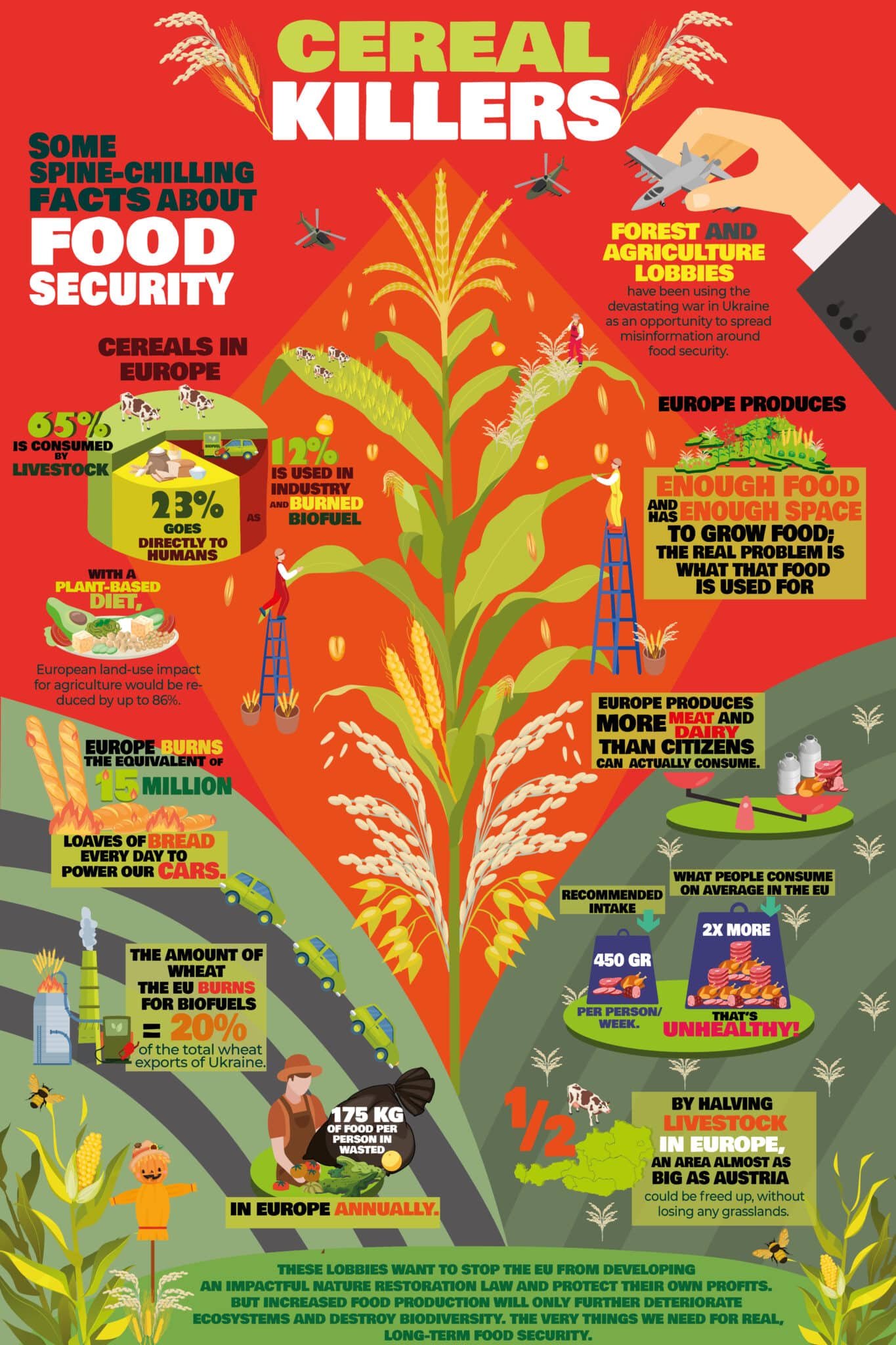
Why do we need to restore nature?
Because we depend on it. For our very survival. Restoring peatlands and floodplains, forests and grasslands significantly reduce the risk of catastrophes such as floods, fires and droughts that can wipe out food production in entire regions, sometimes overnight.
If we want real long-term food security, we need to stop the rapid decline of biodiversity and restore our relationship with nature today, not tomorrow. It is time to get our priorities right and listen to science. Because who can imagine a world without bees and other pollinators? We certainly can’t.
By Caroline Herman
References
Buckwell, A. and Nadeu, E. 2018. What is the Safe Operating Space for EU Livestock? RISE Foundation, Brussels.
European Parliament. Food waste: the problem in the EU in numbers (2017, May 15). https://www.europarl.europa.eu/news/en/headlines/society/20170505STO73528/food-waste-the-problem-in-the-eu-in-numbers-infographicEurostat 2018/2019
Friends of the Earth & Heinrich Böll Stiftungt, Meat Atlas 2021, https://friendsoftheearth.eu/wp-content/uploads/2021/09/MeatAtlas2021_final_web.pdf
Greenpeace EU. (2020). False sense of security: Why European food systems lack resilience. https://www.greenpeace.org/static/planet4-eu-unit-stateless/2020/10/85cc908b-false-sense-of-security_final_en.pdf
Kustar, Anna & Patiño-Echeverri, Dalia. (2021). A Review of Environmental Life Cycle Assessments of Diets: Plant-Based Solutions Are Truly Sustainable, Even in the Form of Fast Foods. Sustainability. 13. 9926. 10.3390/su13179926.
Ruiz Mirazo, J., WWF European Policy Office. (2022). Europe eats the world. In https://wwfeu.awsassets.panda.org/downloads/europe_eats_the_world_report_ws.pdf.
Transport & Environment. Food not fuel: Why biofuels are a risk to food security. (2022, September 30). https://www.transportenvironment.org/discover/food-not-fuel-why-biofuels-are-a-risk-to-food-security/
You might also be interested in:
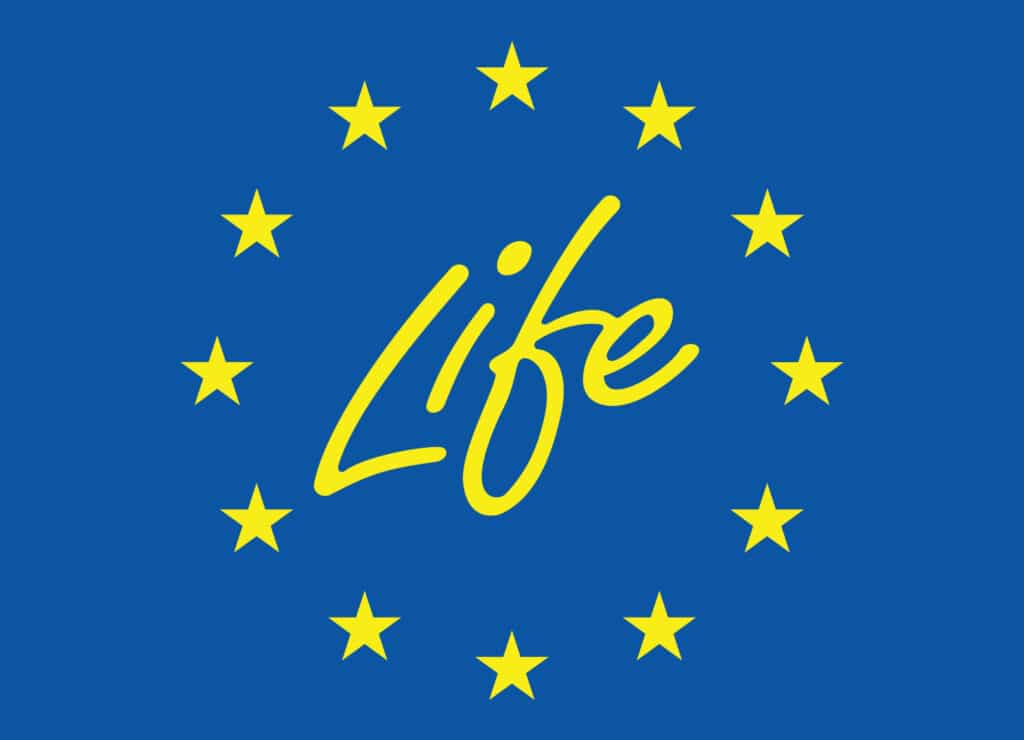 | Stichting BirdLife Europe gratefully acknowledges financial support from the European Commission. All content and opinions expressed on these pages are solely those of Stichting BirdLife Europe. The European Commission is not responsible for any use that may be made of the information it contains. |
